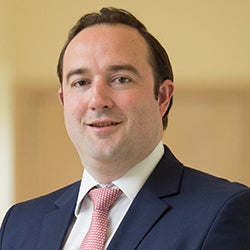
The healthcare sector is a core focus of ours at L.E.K. Consulting. We have broad experience in working with both hospital and non-hospital based healthcare service providers, as well as suppliers of medical devices and consumables. Ambulatory healthcare service provision (anything non-hospital based) is evolving fast in Europe. Traditionally, the sector comprises thousands of small physician-owned businesses — there are more than 140,000 of these in Germany alone, with many more across the continent. We work with businesses in this sector to help them grow, expand, and realise the economies and efficiencies that scale can bring.
Key challenges
Inflation and rising costs are major challenges for the sector. Increased energy costs are clearly having an effect. But talent shortage and increasing staff costs are the biggest challenges to healthcare providers. One way to mitigate the effect of rising prices is to utilize outpatient care; however, this is challenging for clinicians in a heavily regulated market where price rises or tariff updates can take over a year to implement. That timespan is slower than the pace of inflation. Costs for outpatient practices between 2017 and 2020 increased by c.12% on average, despite inflation at the time only reaching 3.7%. Personnel costs also grew by a massive 18.9% p.a.
In Germany alone, 30% of all medical assistants are expected to retire before 2030, and more than 30% of office-based physicians are 60 years and older, thus exacerbating the shortage of talent in the sector. This shortage results in higher competition for staff, significant increases in salaries and added inflationary pressures on healthcare.
The year ahead
The good news for non-hospital based healthcare service provision is that a shift to treating patients in an ambulatory setting is accelerating, and it is driven by medical innovation. This trend delivers significant cost savings for patients as treatment increasingly takes place away from hospitals with expensive inpatient facilities.
Medical practices are responding to the demand for outpatient facilities with a new consolidation model. Many practices are transitioning out of being small one- or two-physician businesses into larger organisations managing 20 or more medical practices. This consolidation offers several advantages. Larger practices can ensure that clinicians can focus on patients by centralising non-clinical functions in one HQ. They can also share back-office functions and costs across the clinical offices while securing clinicians access to the best technology and training. Maximising the potential of these opportunities also demands careful management.
Digital transformation can make a huge difference in the healthcare sector, specifically in the fragmented non-hospital based market. While new research in Germany shows that as few as c.40% of health professionals believe that digital transformation helps them deliver better services, this figure is significantly higher among younger generations — the future of the sector.
“By helping physician groups seize service opportunities and expand patient-facing time, we are helping them not only grow their businesses but offer better clinical services”.
— Tobias Koesters, Partner, Munich
Why L.E.K.?
The journey from small, independent practices to a multi-site physician group is complex. Digital transformation is crucial for successful process management and patient care. It is also a core area of expertise for us here at L.E.K., and a way to add significant value for clients in the healthcare provision sector.
By helping physician groups seize new service opportunities and expand patient-facing clinician time, we help our clients grow their businesses and offer better clinical services to patients. They can work safe in the knowledge that they are backed by a secure, thriving business with well-defined systems, processes and the right standard of care.
We offer unique insight from our international and practice area experience to understand what both clinicians and businesses need. We have medical doctors on our team as well as strategic thinkers and data experts.
01132023110128

